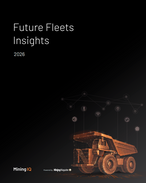This article is 4 years old. Images might not display.
It will also lead to a decline in the living standards of the average Australian as pressure mounts to make more and more cuts to emissions locally that increase the cost of power and lead to a rise in inflation.
Effectively, the world is at year one of a 29-year journey of economic pain as draconian emissions targets are imposed on governments by unelected world bodies.
Prime Minister Scott Morrison has already been under attack by some environmentalists who claim he has produced a plan for net zero by 2050 with his junior coalition partners that does not commit Australia to a stronger 2030 target, rejects phasing out coal, oil or gas, and relies on projected technologies yet to be developed.
Greenpeace Australia Pacific CEO David Ritter said the announcement was meaningless without steep cuts to emissions this decade and would not stand up on the global stage.
"Morrison is coasting on projections of a 35% reduction in emissions by 2030, which we're already on track to hit thanks to progress made by the states, territories and business - and relying on a dirty wishlist of fantasy technology like carbon capture and storage," he said.
So from day one, the pressure already starts to move the environmental goal posts and hasten the demise of coal and other fossil fuels and reduce the viability of regional Australia to maintain well- paid employment.
Governments globally are placing too much faith in the ability of alternative renewables energy capacity and other sources of power such as hydrogen to ramp up in time to replace the sudden removal of coal-fired power.
It is naive to think hydrogen will be the silver bullet to replace coal and ensure Australia's energy exports remain intact.
Industry analyst Wood Mackenzie said several countries were hoping to benefit from developing export-oriented hydrogen megaprojects, with blue and green hydrogen projects also being developed in Russia, Canada, and the Middle East.
While Australia is well positioned, WoodMac research director Prakash Sharma warns there will be strong global competition for the emerging hydrogen export industry.
"Australia, in particular, stands out from the crowd in its track record of exporting a diverse set of natural resources and minerals, sheer physical scale, solar and wind resources and substantial potential for large-scale CCS [carbon capture and storage]," he said.
"A one-size-fits-all approach will not work. In a nascent market, hydrogen participants will need to adopt robust but flexible strategies and business models that support a potentially transformative development in the global energy transition.
"Today, a number of countries have the opportunity to harness their resources and, through hydrogen, become dominant exporters and players in low-carbon energy trading."
This competition will inevitably reduce the returns of hydrogen exporters such as Australia.
This will happen while the developing world struggles to gain access to power to fuel their growing economies - leading to intense hardship for billions of people who do not have access to electricity and who will be shut out of the benefits of economic development for decades to come.
























